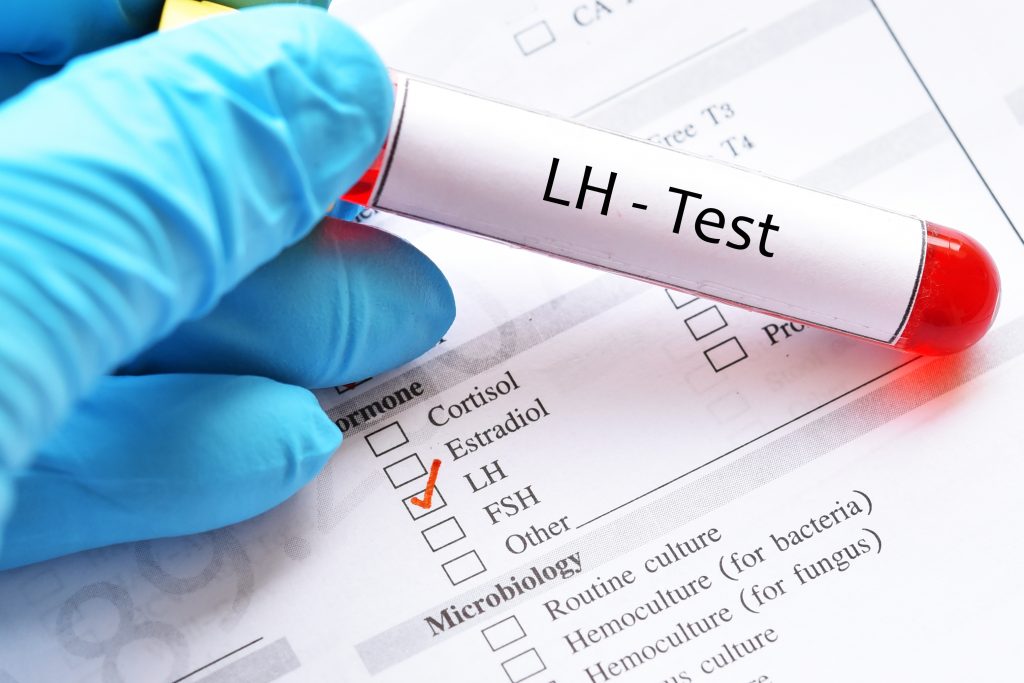What Is LH Hormone?
LH hormone, short for luteinizing hormone, is a glycoprotein hormone that belongs to the gonadotropin family. The pituitary gland secretes LH in response to signals from the hypothalamus, another region of the brain. LH acts on the gonads, which are the testes in males and ovaries in females, to regulate their functions.
Functions of LH Hormone
Females:
In women, LH plays a crucial role in the menstrual cycle and ovulation. During the follicular phase of the menstrual cycle, LH levels rise, leading to the maturation of the ovarian follicles. The surge in LH triggers ovulation, the release of a mature egg from the ovary. After ovulation, LH stimulates the ruptured follicle to transform into the corpus luteum, which produces progesterone, a hormone important for pregnancy.
Males:
In males, LH stimulates the Leydig cells in the testes to produce testosterone, the primary male sex hormone. Testosterone is essential for the development and maintenance of male reproductive tissues and secondary sexual characteristics.
LH Hormone Levels
The optimal levels of LH hormone can vary depending on various factors such as age, sex, and reproductive stage. Here are some general guidelines:
Females:
Follicular Phase: 1-15 IU/L
Mid-cycle (Ovulation): 70-250 IU/L
Luteal Phase: 2-18 IU/L
Males: 1-9 IU/L
It’s important to note that these values are approximate and may vary between different laboratories and assay methods. Additionally, LH levels fluctuate throughout the day, with the highest concentrations usually observed in the early morning.
Factors Affecting LH Hormone Levels
Several factors can influence LH hormone levels, and understanding these factors is essential for interpreting LH test results accurately. Here are some key factors that can affect LH levels:
Age:
LH levels vary throughout different stages of life. During childhood, LH levels are low. In females, LH levels increase during puberty, contributing to the onset of menstruation. In males, LH levels rise during adolescence, initiating the development of secondary sexual characteristics.
Menstrual Cycle:
In women, LH levels fluctuate throughout the menstrual cycle. The highest levels are observed during the mid-cycle surge, which triggers ovulation. Monitoring LH levels can help determine the timing of ovulation, making it useful for fertility tracking and family planning.
Pregnancy:
During pregnancy, LH levels typically remain low. The hormone responsible for maintaining pregnancy, human chorionic gonadotropin (hCG), has a similar structure to LH and can interfere with LH testing. Therefore, LH tests are not typically used during pregnancy.
Menopause:
As women enter menopause, LH levels tend to increase. This rise in LH is associated with the cessation of menstrual periods and the decline in reproductive hormone production.
Stress and Illness:
Stress and certain medical conditions can affect LH levels. Prolonged physical or emotional stress can disrupt the normal hormonal balance and suppress LH secretion. Similarly, certain illnesses, such as polycystic ovary syndrome (PCOS) or pituitary disorders, can cause abnormal LH levels.
Medications and Treatments: Certain medications, such as hormone therapies or fertility drugs, can affect LH levels. It is important to inform your healthcare provider about any medications or treatments you are undergoing when interpreting LH test results.
Interpreting LH Test Results
Interpreting LH test results requires considering the individual’s specific circumstances and comparing the results with reference ranges provided by the laboratory. These reference ranges are typically based on the population average and may vary slightly between different laboratories.
Low LH Levels:
Low LH levels may indicate various conditions, such as hypothalamic or pituitary dysfunction, stress, excessive exercise, or certain genetic disorders. In women, low LH levels can affect fertility and the regularity of menstrual cycles. In men, it may result in low testosterone levels and impaired reproductive function.
High LH Levels:
Elevated LH levels can occur due to conditions such as polycystic ovary syndrome (PCOS), premature ovarian failure, primary testicular failure, or certain tumors. High LH levels in women can indicate fertility issues, while in men, it may indicate decreased testosterone production.
It is important to remember that LH levels should be interpreted alongside other hormone levels and clinical symptoms to reach an accurate diagnosis. Consulting with a healthcare professional who can provide a comprehensive evaluation is crucial for proper interpretation and management of LH test results.
Luteinizing hormone (LH) is a vital hormone that regulates reproductive functions in both males and females. Understanding the factors that affect LH levels and how to interpret LH test results can provide valuable insights into reproductive health, fertility, and hormonal balance. If you have concerns about your LH levels or reproductive health, it is recommended to consult with a healthcare professional who can provide personalized guidance and appropriate medical interventions. By staying informed and proactive, you can take control of your reproductive well-being and overall health.




